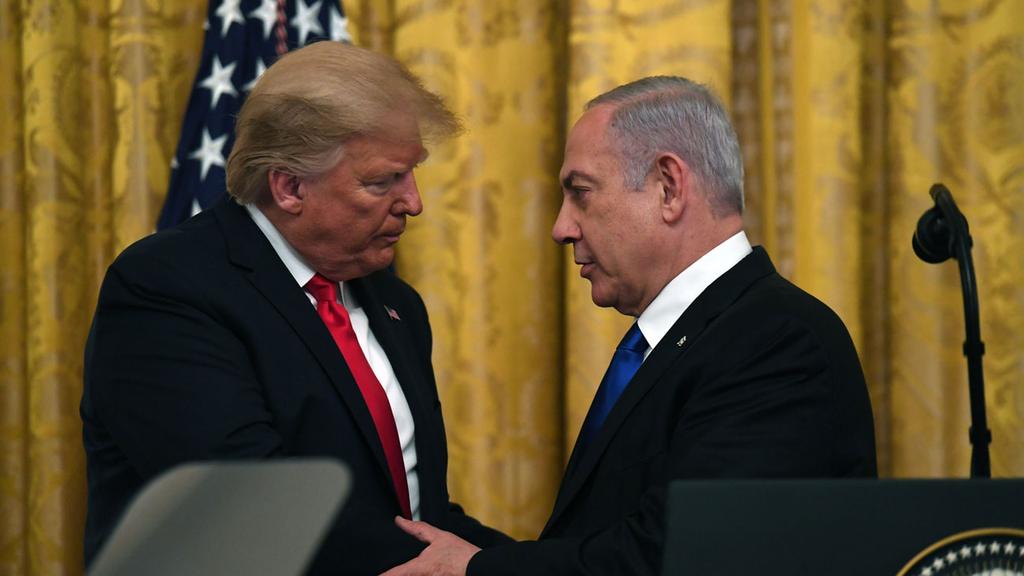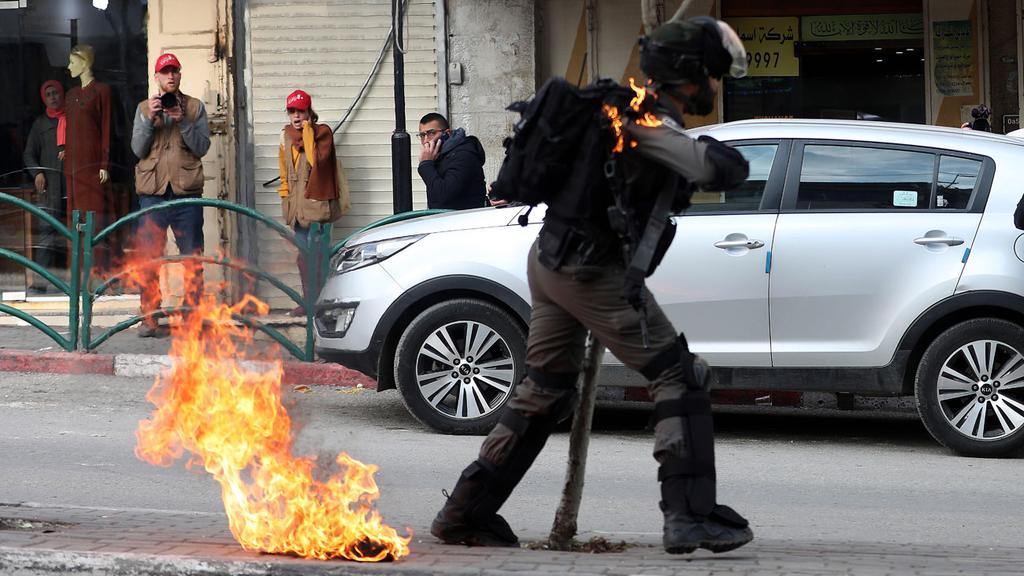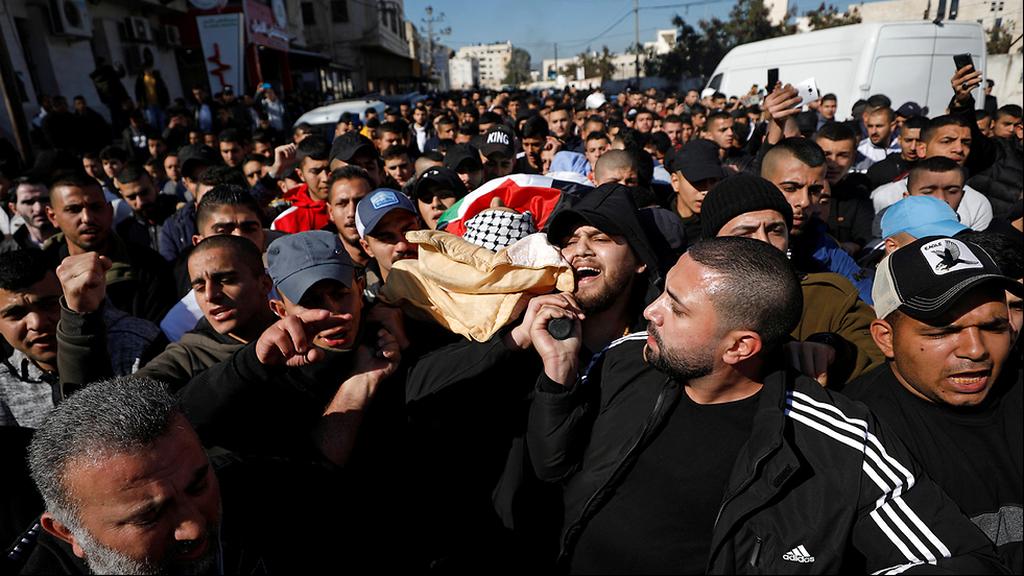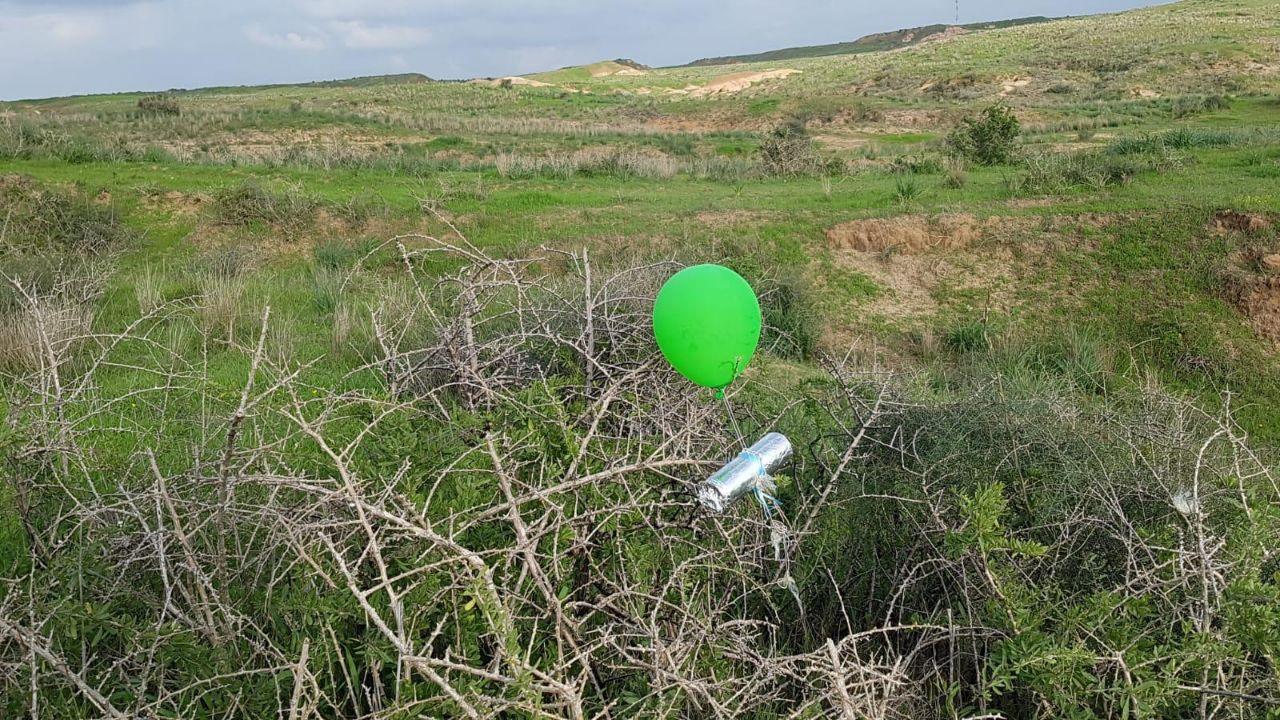Getting your Trinity Audio player ready...
For two weeks now, the Israeli security apparatus and the Palestinian leadership have been giving off similar signals, each in its own way, regarding the danger inherent Israel's plans to annex territory in the West Bank, and in fact the danger of discussing the matter at all.
Jerusalem has refused to listen to what the IDF Central Command, Ramallah and even Washington have voiced very clearly: Words can kill, not only actions.
4 View gallery


U.S. President Donald Trump and Prime Minister Benjamin Netanyahu unveiling the 'Deal of the Century' peace plan
(Photo: GPO)
Until Wednesday, Israeli security forces have made a valiant effort to dispel the air of menace hovering over the West Bank.
If the Palestinians were surprised, it was by the level of restraint shown by Israeli forces on the ground, even in areas subject to actions more violent than usual.
"I see the squad commander and he's not letting anyone shoot, not even tear gas, without his direct order," said a Palestinian who was present in Hebron on Tuesday; where a Border Policeman was hit with a Molotov cocktail.
"It's perfectly clear that all they want to do is restrain themselves for a few days until [the Palestinians'] energy is depleted," he said.
But it seems that Israel's patience ran out and the first casualty of the American peace plan was, of course, in that same area of Hebron.
Cooler heads fortunately prevailed, and the 17-year old's funeral occurred in the late hours of the night in order to deny a stage for a mass funeral march, where participants would be riled up and prepare revenge attacks.
Palestinians carrying the body of the dead rioter in Hebron
The plan was successful, with the funeral attracting a small gathering and the IDF breathing a sigh of relief.
Several hours pass and then a directive came down for the second demolition of the family home of the terrorist from Jenin who killed Rabbi Raziel Shevah in September 2018.
The order was given just hours after a Palestinian was killed; the entire region is at near boiling point and the security cooperation between Israel and the Palestinian Authority at an all-time low.
"A house is a ticking time bomb?" said a Palestinian official advocating a moderate approach in relations with Israel. "Would the walls have run away if you'd waited a week or two?"
The consequences of that demolition were proof of its curious poor timing:
What followed was IDF forces exchanging gunfire with militants and a Palestinian mob arriving at the scene. This led to two fatalities, including a member of the Palestinian security services who were on duty.
But the main thing was that the walls were demolished and did not stand for another two weeks during which Israel's national security would probably have been compromised.
So why exactly was the house demolished? No one has provided any concrete answers, but we can expect the usual cliché of an "operational opportunity that could not be missed."
The events evoke bad memories of the beginning of the 2015-2016 wave of violence, which resulted in 35 Israelis and 235 Palestinians killed.
The official stance of the Palestinian Authority, blaming the U.S. peace plan for the escalation in the region - and its promise to continue its opposition to it regardless of the sacrifices – is not a calming factor, but it is still not too late to bring back some semblance of peace.
A combination of Israeli lawmakers halting any talk of annexation, restraint from the security forces so as to not cause more Palestinian deaths and a close dialog with the Palestinian leadership, will probably help in venting some steam.
The trade war Defense Minister Naftali Bennett initiated against the Palestinian Authority is not helping in restoring calm any sooner.
Ecclesiastes says: "To everything, there is a season and a time to every purpose under the heaven… a time to get, and a time to lose; a time to keep, and a time to cast away."
It seems obvious that Israel should be keeping those who work day and night to try to prevent terrorism.
But for some reason, the government decides to keep (in the form of dollars and civil relief) those who day and night launch rockets and explosives over our heads.







